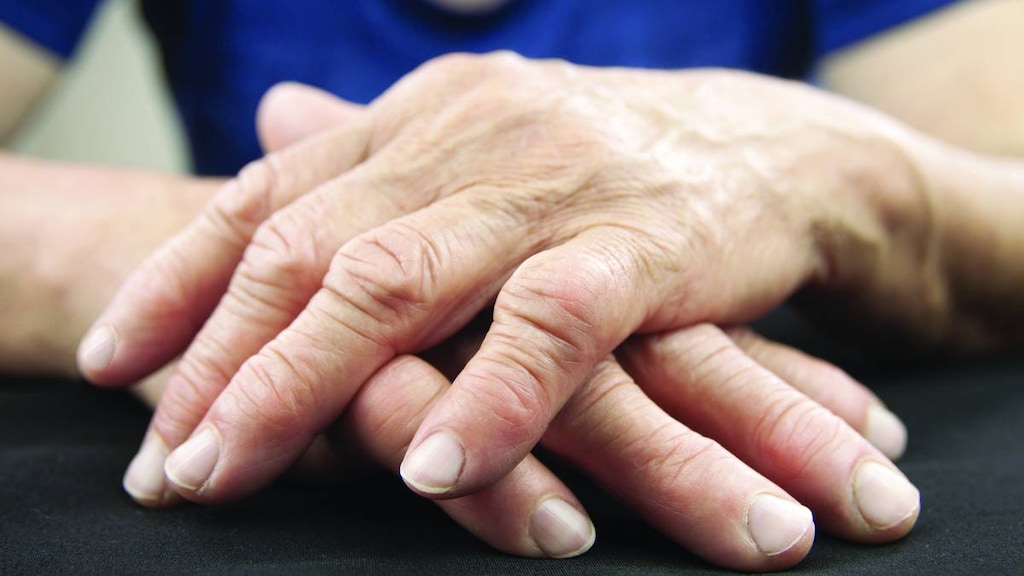What is anakinra used for?
- Anakinra is used to treat rheumatoid arthritis.
- It is used to treat Neonatal-Onset Multisystem Inflammatory Disease (NOMID).
- Anakinra may be given to you for other reasons. Talk to your doctor.
Before taking anakinra, tell your doctor:
- If you are allergic to anakinra; any part of this medicine; or any other drugs, foods, or substances. Tell your doctor about the allergy and what signs you had.
- If you have an infection.
- If you are taking any of these drugs: Adalimumab, certolizumab, etanercept, golimumab, or infliximab.
This is not a list of all drugs or health problems that interact with anakinra.
Tell your doctor and pharmacist about all of your drugs (prescription or OTC, natural products, vitamins) and health problems. You must check to make sure that it is safe for you to take anakinra with all of your drugs and health problems. Do not start, stop, or change the dose of any drug without checking with your doctor.
What are some things I need to know or do while I take anakinra?
- Tell all of your health care providers that you take anakinra. This includes your doctors, nurses, pharmacists, and dentists.
- If you have asthma, talk with your doctor. You may have a chance of a very bad infection.
- Have blood work checked as you have been told by the doctor. Talk with the doctor.
- Talk with your doctor before getting any vaccines. Use of some vaccines with anakinra may either raise the chance of an infection or make the vaccine not work as well.
- You may have more chance of getting an infection. Wash hands often. Stay away from people with infections, colds, or flu.
- Very bad infections have been reported with use of anakinra. If you have any infection, are taking antibiotics now or in the recent past, or have many infections, talk with your doctor.
- TB (tuberculosis) has been seen in patients started on anakinra. These patients were exposed to TB in the past, but never got the infection. You will be tested to see if you have been exposed to TB before starting anakinra.
- The chance of lymphoma may be raised in people with rheumatoid arthritis. It is not known if anakinra may also raise the chance. Talk with the doctor.
- If you are 65 or older, use anakinra with care. You could have more side effects.
- Tell your doctor if you are pregnant or plan on getting pregnant. You will need to talk about the benefits and risks of using anakinra while you are pregnant.
- Tell your doctor if you are breast-feeding. You will need to talk about any risks to your baby.
How is anakinra best taken?
Use anakinra as ordered by your doctor. Read all information given to you. Follow all instructions closely.
- It is given as a shot into the fatty part of the skin.
- Keep taking anakinra as you have been told by your doctor or other health care provider, even if you feel well.
- If you will be giving yourself the shot, your doctor or nurse will teach you how to give the shot.
- Take anakinra at the same time of day.
- Before using anakinra, take it out of the refrigerator and leave it at room temperature for 30 minutes.
- Wash your hands before and after use.
- Move the site where you give the shot with each shot.
- Do not give into red or irritated skin.
- Do not use anakinra if it has been dropped or if it is broken.
- Do not shake.
- Throw away any part left over after the dose is given.
- Throw syringe away after use. Do not use the same syringe more than one time.
- This product may contain small white particles. Do not use if the solution is cloudy, leaking, or has large lumps, flakes, or other particles.
- Do not use if solution changes color.
- Throw away needles in a needle/sharp disposal box. Do not reuse needles or other items. When the box is full, follow all local rules for getting rid of it. Talk with a doctor or pharmacist if you have any questions.
What do I do if I miss a dose?
- Call your doctor to find out what to do.
What are the side effects of anakinra that I need to call my doctor about immediately?
WARNING/CAUTION: Even though it may be rare, some people may have very bad and sometimes deadly side effects when taking a drug. Tell your doctor or get medical help right away if you have any of the following signs or symptoms that may be related to a very bad side effect:
- Signs of an allergic reaction, like rash; hives; itching; red, swollen, blistered, or peeling skin with or without fever; wheezing; tightness in the chest or throat; trouble breathing, swallowing, or talking; unusual hoarseness; or swelling of the mouth, face, lips, tongue, or throat.
- Signs of infection like fever, chills, very bad sore throat, ear or sinus pain, cough, more sputum or change in color of sputum, pain with passing urine, mouth sores, or wound that will not heal.
- Very bad irritation where the shot was given.
- Dizziness or passing out.
- A fast heartbeat.
- A heartbeat that does not feel normal.
- Sweating a lot.
What are some other side effects of anakinra?
All drugs may cause side effects. However, many people have no side effects or only have minor side effects. Call your doctor or get medical help if any of these side effects or any other side effects bother you or do not go away:
- Redness or swelling where the shot is given.
- Itching where the shot is given.
- Bruising where the shot is given.
- Stinging.
- Headache.
- Upset stomach or throwing up.
- Diarrhea.
- Joint pain.
- Nose or throat irritation.
- Sore throat.
- Runny nose.
- Flu-like signs.
- Sinus pain.
- Stomach pain.
These are not all of the side effects that may occur. If you have questions about side effects, call your doctor. Call your doctor for medical advice about side effects.
You may report side effects to the FDA at 1-800-332-1088. You may also report side effects at https://www.fda.gov/medwatch.
If overdose is suspected:
If you think there has been an overdose, call your poison control center or get medical care right away. Be ready to tell or show what was taken, how much, and when it happened.
How do I store and/or throw out anakinra?
- Store in a refrigerator. Do not freeze.
- Store in the original container to protect from light.
- Keep all drugs in a safe place. Keep all drugs out of the reach of children and pets.
- Throw away unused or expired drugs. Do not flush down a toilet or pour down a drain unless you are told to do so. Check with your pharmacist if you have questions about the best way to throw out drugs. There may be drug take-back programs in your area.
Consumer information use and disclaimer
- If your symptoms or health problems do not get better or if they become worse, call your doctor.
- Do not share your drugs with others and do not take anyone else's drugs.
- Some drugs may have another patient information leaflet. Check with your pharmacist. If you have any questions about anakinra, please talk with your doctor, nurse, pharmacist, or other health care provider.
- If you think there has been an overdose, call your poison control center or get medical care right away. Be ready to tell or show what was taken, how much, and when it happened.
This information should not be used to decide whether or not to take anakinra or any other medicine. Only the healthcare provider has the knowledge and training to decide which medicines are right for a specific patient. This information does not endorse any medicine as safe, effective, or approved for treating any patient or health condition. This is only a brief summary of general information about this medicine. It does NOT include all information about the possible uses, directions, warnings, precautions, interactions, adverse effects, or risks that may apply to anakinra. This information is not specific medical advice and does not replace information you receive from the healthcare provider. You must talk with the healthcare provider for complete information about the risks and benefits of using this medicine.




